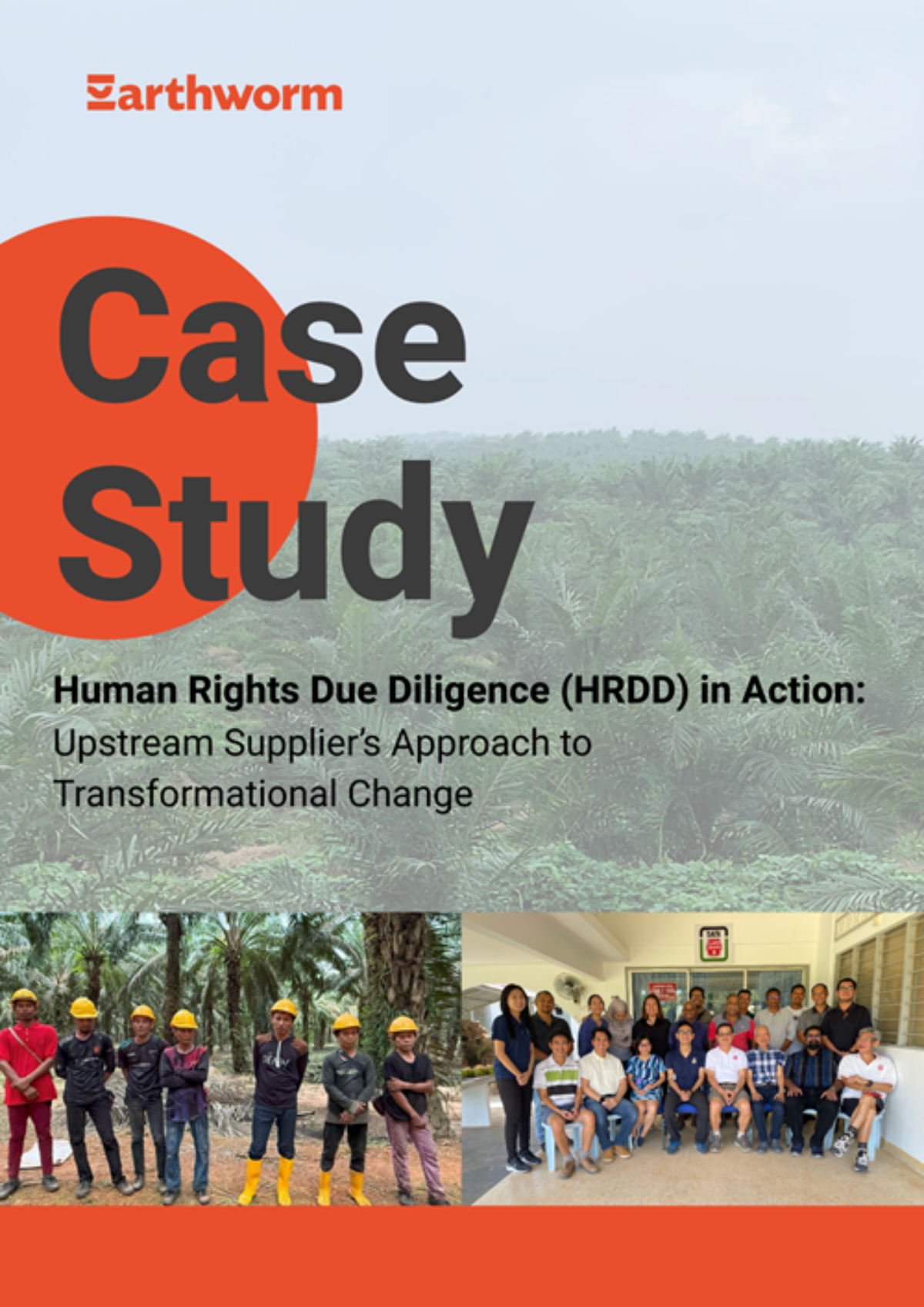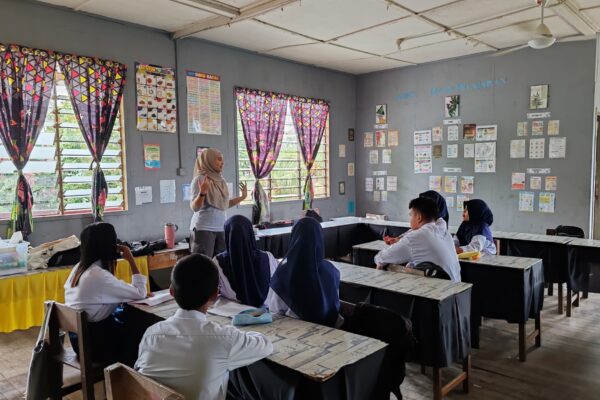Supplier-led action in Peninsular Malaysia has strengthened protections and improved recruitment systems for over 420 migrant workers.
In partnership with Ferrero, Intercontinental Specialty Fats (ISF), and Dara Lam Soon (DLS), Earthworm Foundation has implemented the Labour Transformation Programme (LTP) and Ethical Recruitment Due Diligence (ERDD). This joint effort shows how collaboration at the mill and estate level can translate global human rights commitments into tangible outcomes for workers.
The case study, Human Rights Due Diligence (HRDD) in Action: Upstream Supplier’s Approach to Transformational Change, illustrates how combining LTP and ERDD helped DLS enhance fair recruitment practices, worker contracts, grievance mechanisms, freedom of movement, health and safety, and accommodation standards. Concrete improvements included translated contracts and payslips, lockable cupboards for passport safekeeping, anonymous grievance channels, safer housing facilities, and strengthened engagement with trade unions and worker representatives. . Closely linked to the effort to build transparency in the recruitment process of migrant workers in the country of origin, Abdul Hamid Kimar, the Group Sustainability Manager of Lam Soon Plantations shared how DLS conducted due diligence in Indonesia to identify the root causes of recruitment issues and actions taken to promote ethical recruitment.

"While satellite technology can track deforestation and land use with precision, it cannot capture the social realities such as recruitment practices, fair contracts, or worker well-being. That’s why sustainability efforts must go beyond remote monitoring and take root on the ground, where labour-related risks can be better understood and addressed.
Through our collaboration with Ferrero and Earthworm Foundation, and with thanks to Dara Lam Soon for their openness and commitment, we’ve demonstrated that meaningful transformation happens when brands and suppliers work side by side to strengthen systems, build capacity, and ensure responsible practices are embedded across the supply chain."
When downstream buyers and producers collaborate in conducting human rights risks assessments, capacity building, and co-developing solutions to address issues facing workers in supply chain, this partnership not only amplifies impact but also reduces the burden on individual companies, providing workers with better protections and more consistent standards across the supply chain.
"Where palm oil supply chains are complex and opaque with many tiers, a key to a successful human rights transformation in the supply chain, is an effective and supportive supplier engagement across all tiers- with brands, origin refineries, crushers, mills, and plantations. This case study exemplifies how EF plays a crucial role in enabling refineries and producers meeting the market demand and regulations while dealing with real challenges and opportunities on the ground unique to Malaysia.”
Lynda Lim, Technical Lead-Social and Human Rights Earthworm Foundation.


